Mathematics - Year 7
Click here to return to our Physical Education curriculum home page
Below you will find more specific information about the curriculum in Dance for students who have chosen this subject for GCSE, explaining to you what students will learn, when, why and how. There is also information about how parents/carers are able to support students in their learning, extra-curricular opportunities in this subject and how it links to other subjects and the wider world.
Subject Key Concepts
#1 Performance #2 Choreography #3 Physical and technical skills #4 Expressive skills
#5 Mental skills #6 Anthology #7 Choreographic processes #8 Choreographic content
Please click here for Subject Key Concepts.
Curriculum Overview for Year 10
|
Term |
Topic / Key Concepts
Specific Knowledge |
Specific Skills |
|
Autumn Term |
During this term students will develop knowledge and understanding of performance skills, expressive, technical and mental skills. Students will start to experience choreographic tasks and develop their creativity. Students will also have an introduction to the dance anthology. |
· AO1: Perform dance, reflecting choreographic intention through physical, technical and expressive skills · AO2: Create dance, including movement material and aural setting, to communicate choreographic intention · AO3: Demonstrate knowledge and understanding of choreographic processes and performing skills · AO4: Critically appreciate own works and professional works, through making analytical, interpretative and evaluative judgements. |
|
Spring Term |
During this term students will further develop their performance skills through introduction to set phrases with an emphasis on accuracy. Students will start to respond to stimuli and use choreographic skills to create and develop a choreography in groups. Key fact files for the anthology works will be explored and definitions and facts will be embedded. |
|
|
Summer Term |
During this term students will be assessed in their performance skills through a performance experience. They will develop their confidence in performance and responding to feedback. Students will continue to use choreographic processes to develop and complete a choreography in response to a stimulus. Students will begin to develop understanding of extended writing and answering 6 mark questions. |
Curriculum Overview for Year 11
|
Useful documents:
Please click here for a PDF of curriculum overview for Year 10.
Please click here for a PDF of curriculum overview for Year 11.
While this information covers a broad range of areas, please do get in touch with the Subject Leader Mr Bradley if you have any questions.
Please click on the questions below to find out more.
Which exam board will students be examined by?
AQA
How are groups organised?
The students have five one hour lessons per fortnight. Two are theory and three are practical.
What characteristics does a successful student have in this subject?
The most successful students in Dance enjoy working practically as well as performing. Students will enjoy learning about all aspects of Dance as well as creating and researching different styles of dance.
How will students learn at this level?
- Watching practical demonstrations
- Selecting, improvising and refining movement
- Using videos to support learning
- Group work will form the basis for a lot of practical lessons
How will students’ learning be assessed at this level?
Component 1:
NEA (Non exam assessment) you will be recorded in your 3 practical components and the recordings will be sent to AQA to be moderated.
Component 2:
1 hour 30 minutes written exam
When do key assessments take place?
Component 1:
The NEA assessments take place across the course of Year 11.
Performance (set phrases):
January –February
Performance (Duet/Trio):
January - February
Choreography:
March/April
Component 2:
The theory exam will take place during the exam period of Year 11
How can parents/carers support students’ learning?
- Come and watch practical showcases
- Encourage students to watch the 6 anthology works (link to video on show my homework)
- Watch dance productions live, on TV or on YouTube
- Support students in their written homework
What equipment do students need for this subject?
School PE kit
Leotard
Essential school equipment for theory
How does this subject link to other subjects?
Drama – performance skills
History- analysis and interpretation of materials eg. Poems/pictures/text/sources
What websites or resources may be helpful to support students’ learning?
https://www.aqa.org.uk/resources/dance/gcse/dance/teach/command-words
https://www.aqa.org.uk/resources/dance/gcse/dance/teach/dance-anthology
What extra-curricular or enrichment opportunities are available for students in this subject at this level?
- Gym and Dance display
- Dance club
- Assembly performances
- Christmas concert performances
- School production
- KS3 dance club for leadership opportunities
- Workshop days at KTS but also with partnership at Emil Dale
What sort of careers can this subject lead to?
Many students go on to work in the performing arts world but many have gone on to a wider range of careers such as the police force, midwifery, teaching and many have also become business owners.
What does student work look like in this subject at this level?
https://filestore.aqa.org.uk/resources/dance/AQA-82362-SMS.PDF
How does this subject support a broad and balanced curriculum, meeting the needs of all students, and developing traditional core skills?
The course allows for pupils to perform as well as choreograph, the course also provides both practical and theoretical elements.
We have mixed ability classes, so students gain teacher and peer support. In addition, students can show a range of abilities through practical and written work.
How does this subject promote creativity, critical thinking, practice, perseverance and resilience, and making links?
Students create their own choreography allowing them to research and find a theme.
The dance anthology part of the exam requires students to interpret and provide their own opinions and conclusions.
Students will need to practice key skills and master technique which requires resilience.
Students will make links with other subjects such as drama and music through performance but also key evaluative and analytical skills used in English.
How does this subject encourage enrichment and the development of cultural capital, deep learning, and inclusivity?
Students anthology includes a variety of themes including disability, inclusion, race, culture and also covers a range of styles from hip/hop through to Brazilian samba and contemporary.
Deep learning is embedded by students having the opportunities to practise practical skills and reflect on these skills through short answer exam questions.
The subject is inclusive of all students from all backgrounds. Students are able to share their experiences which allows them to share new and different ideas especially in choreography.






